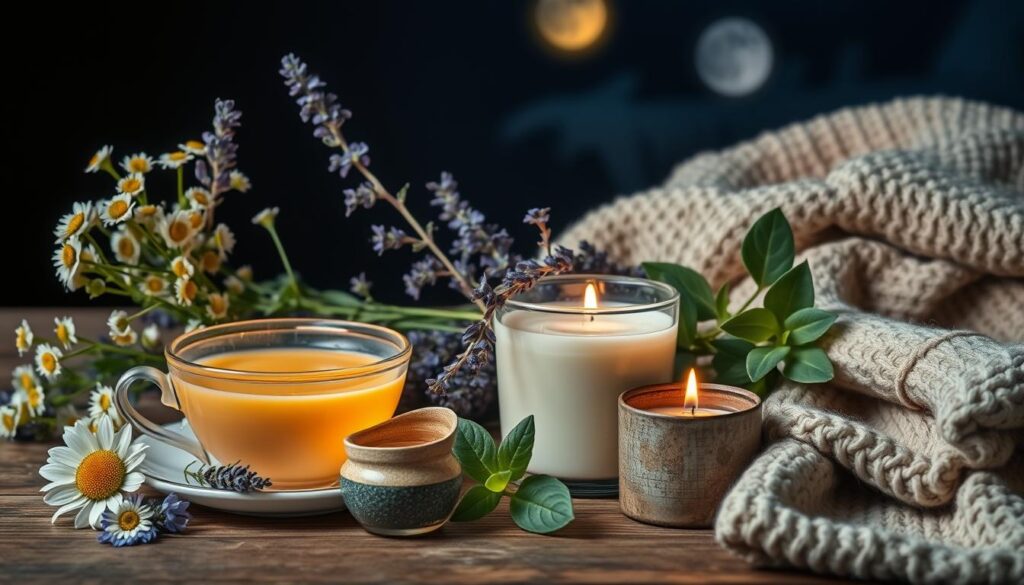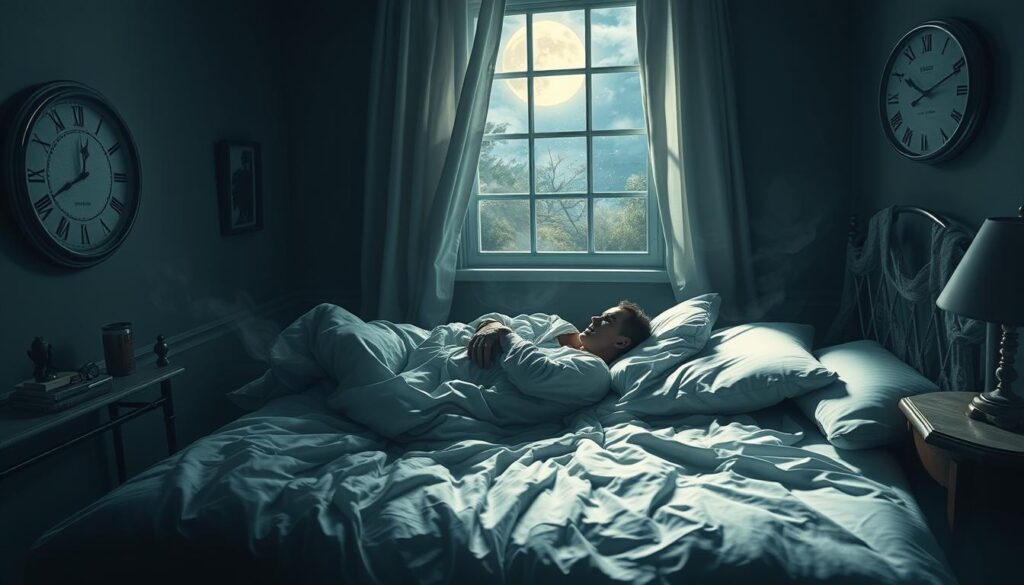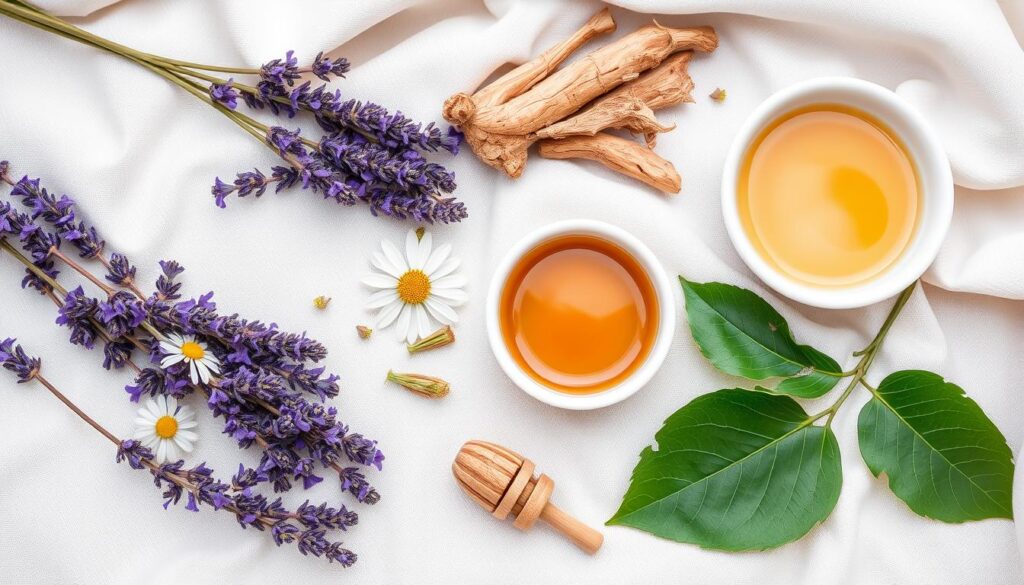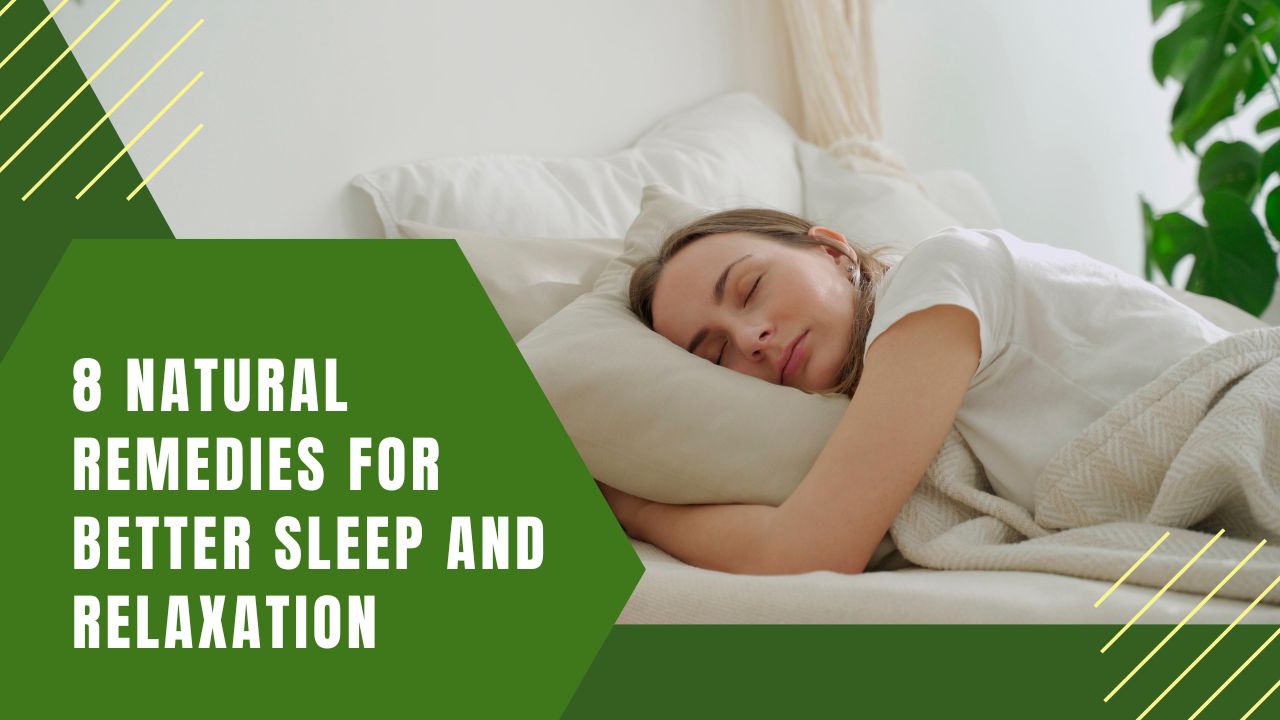Did you know that nearly 70% of adults in India struggle with sleep issues? Sleep is a cornerstone of health, and not getting enough can impact your energy, productivity, and overall well-being. But the good news is, there are simple, natural remedies you can adopt to improve your relaxation and enjoy restful nights.
In this guide, we’ll explore 8 natural remedies to help you unwind, fall asleep faster, and wake up feeling refreshed. Ready to embrace better sleep and enhanced relaxation? Let’s dive in!
Table of Contents

We’ll explore soothing herbal teas and calming aromatherapy. These natural ingredients can ease stress and help you sleep better. Whether you have insomnia, occasional sleep problems, or just want to relax after a long day, these remedies can help.
Key Takeaways
- Discover the common sleep issues affecting modern society and their impact on daily life
- Understand the connection between stress and sleep, and how to address it naturally
- Explore a range of natural ingredients that can enhance sleep quality and promote relaxation
- Learn effective techniques, such as mindfulness and meditation, to create the perfect bedtime routine
- Regain control over your sleep and enjoy the many benefits of a well-rested, relaxed lifestyle
Understanding Sleep Disorders and Their Impact on Daily Life
Sleep is crucial for our health, but many struggle with sleep disorders. Issues like insomnia and sleep apnea can affect our daily life. They impact our productivity, mood, and physical health. Let’s look at common sleep challenges and how stress affects sleep.
Common Sleep Issues in Modern Society
In today’s fast world, sleep disorders are common. Insomnia makes it hard to fall or stay asleep. Sleep apnea causes breathing stops during sleep. Restless leg syndrome leads to uncomfortable feelings and disrupted sleep. Stress, irregular work, and too much screen time can make these worse.
The Connection Between Stress and Sleep
Stress and sleep are closely tied. Chronic stress can lead to sleep disorders by disrupting sleep patterns. Poor sleep can also increase stress, creating a cycle that’s hard to break. It’s important to understand this link to tackle both sleep issues and stress.
Health Consequences of Poor Sleep
- Weakened immune system
- Increased risk of chronic diseases, such as heart disease and diabetes
- Impaired cognitive function, including difficulty concentrating and memory issues
- Emotional distress, including increased feelings of anxiety and depression
- Decreased productivity and overall quality of life
By tackling sleep disorders, managing stress, and focusing on healthy sleep, we can avoid the health consequences of poor sleep. This improves our overall well-being.

“A good laugh and a long sleep are the best cures in the doctor’s book.” – Irish Proverb
Essential Natural Ingredients for Sleep Enhancement
Natural ingredients can greatly improve sleep quality and relaxation. These include botanicals, herbs, and minerals used for centuries. They help people relax and sleep better. Let’s look at some of the best natural sleep aids and how they work.
Melatonin is a hormone that helps control sleep and wake cycles. Taking natural melatonin can reset your body’s clock and improve sleep.
Valerian root is another key ingredient for sleep. It’s been used for ages to treat insomnia and relax the body. Valerian root boosts GABA, a neurotransmitter that relaxes the body and mind.
Herbs like chamomile, lavender, and passionflower are also great for calming. They can be made into teas or used in aromatherapy. This creates a peaceful environment for better sleep.
“The power of natural ingredients to enhance sleep should not be underestimated. These botanicals offer a gentle, holistic approach to improving rest and relaxation.”
Minerals like magnesium and zinc are also vital for sleep. Magnesium helps manage stress and relax muscles. Zinc is needed for melatonin production.
Adding these natural sleep aids to your daily routine can improve your sleep and overall health.

- Melatonin
- Valerian Root
- Chamomile
- Lavender
- Passionflower
- Magnesium
- Zinc
8 Natural Remedies,Sleep,Relaxation: A Comprehensive Guide
Finding a good night’s sleep and relaxation can be tough today. Luckily, nature has many natural remedies to help. This guide will look at herbal teas, aromatherapy, and mindfulness and meditation. We’ll find the best natural remedy for you.
Herbal Teas and Their Calming Properties
Herbal teas are a favorite for better sleep and relaxation. Chamomile, lavender, and valerian root teas are great. They have compounds that calm the mind and body, helping you sleep well.
Aromatherapy Solutions for Better Sleep
Aromatherapy is also great for relaxation and sleep. Essential oils like lavender, bergamot, and ylang-ylang can be used. They can be diffused or applied to calm your senses before bed.
Mindfulness and Meditation Techniques
Mindfulness and meditation can also improve sleep and relaxation. They help you focus on the present and calm your mind. This reduces stress and anxiety, making it easier to sleep.
Adding these natural remedies to your routine can change your sleep and well-being. Try different methods to find what works best for you. This way, you can get the restful sleep you need.
“The best bridge between despair and hope is a good night’s sleep.” – E. Joseph Cossman
Creating the Perfect Bedtime Routine for Quality Rest
Creating a bedtime routine is key for good sleep and relaxation. We’ll show you how to make a routine that fits you. It should include natural remedies and focus on sleep hygiene and a cozy sleep space.
Begin by setting a regular sleep schedule. Try to go to bed and wake up at the same time every day. This helps your body get into a sleep rhythm. Add calming activities like reading or listening to soft music to your routine. It tells your body it’s time to relax.
Make your sleep area dark, cool, and quiet. Use blackout curtains or an eye mask for light. Choose a comfy mattress and pillows for your spine. Try herbal teas or essential oils to make your sleep even better.
FAQ
What are some common sleep disorders affecting modern society?
Common sleep disorders include insomnia, sleep apnea, restless leg syndrome, and circadian rhythm disorders. These issues can cause fatigue, mood changes, and health problems.
How is stress connected to sleep?
Stress and sleep are closely linked. Chronic stress can make it hard to fall and stay asleep. Poor sleep can also increase stress, creating a cycle that harms our well-being.
What are the health consequences of poor sleep?
Poor sleep can weaken our immune system and increase the risk of diseases like heart disease and diabetes. It can also impair our brain function. It’s important to address sleep problems for our health.
What natural ingredients are known for their sleep-enhancing properties?
Natural ingredients like chamomile, valerian, and lavender can help us sleep better. Minerals like magnesium and melatonin supplements also support sleep. These ingredients help our body’s natural sleep cycle and reduce stress.
How can herbal teas help improve sleep?
Herbal teas like chamomile, valerian, and passionflower can calm the body and mind. Drinking a cup of herbal tea before bed can signal to our body that it’s time to relax.
What are some effective aromatherapy solutions for better sleep?
Essential oils like lavender, bergamot, and ylang-ylang can calm the body and mind. Using these oils in the bedroom or applying them can help improve sleep quality.
How can mindfulness and meditation techniques support better sleep?
Mindfulness and meditation can reduce stress and anxiety, common sleep barriers. These practices help quiet the mind and promote relaxation, making it easier to sleep.
What are some tips for creating an effective bedtime routine?
A consistent bedtime routine is key for quality sleep. Avoid screens before bed and do relaxing activities like reading. Keep your bedroom cool, dark, and quiet for better sleep.





